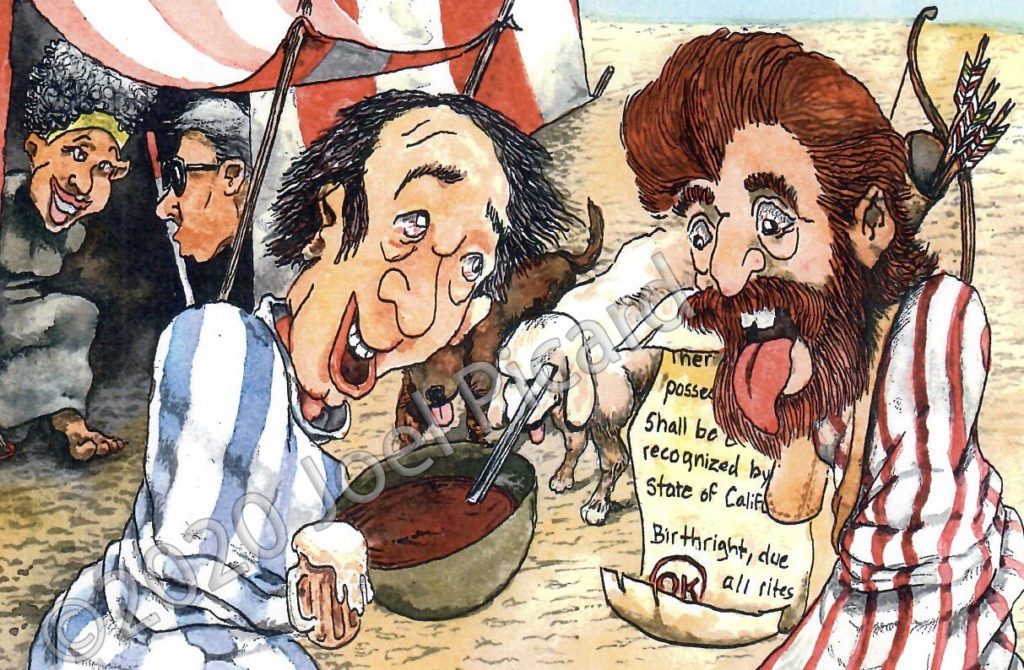Genesis 25

“Oooh, red stew! I love red stew. And…is that amber ale? I love amber ale. Red is my favorite color. Did you know that, little brother? I’ll swap you anything for them.”
Well, Esau the guileless gets duped by his opportunistic little brother, Jacob. Esau sells Jake the Jerk his birthright for a bowl of lentils. The propriety of such a transaction has to be wondered about when, two chapters later, Jacob conspires with his mother in order to trick the ol’ man into bestowing his blessing on Jacob rather than on Esau, as Isaac intended and desired. If the blessing depended entirely on Isaac’s conferral, then what point was there in Jacob’s trying to procure the blessing/birthright by means of a bowl of soup some years earlier? If the transaction would not be legally recognized, why bother when the only real effect is—now Esau is tipped off that the birthright is a thing to be valued and coveted? Did Esau’s sale of the birthright even become public knowledge? Was Isaac acting contrary to a legitimate legal transaction by trying to bless Esau nonetheless? And how does Jacob get away with being such a scoundrel? In some ways the narrative seems to want to hold Esau responsible for his own disappointments; the text implying that he is rash; that his Hittite brides are Canaanite trash and a pain in Esau’s folks’ (bleep);…but, at the end of the day, it’s hard not to feel as though the deck was stacked against Esau from the get go, and that his worst fault was simply that he wasn’t bright enough to identify and to attempt to check the unbridled ambitions of his younger brother. Esau may have undervalued the birthright, but then…how do we come to value anything except by way of the covetousness of others, which informs us of the thing’s worth?
©2020 Joel Picard